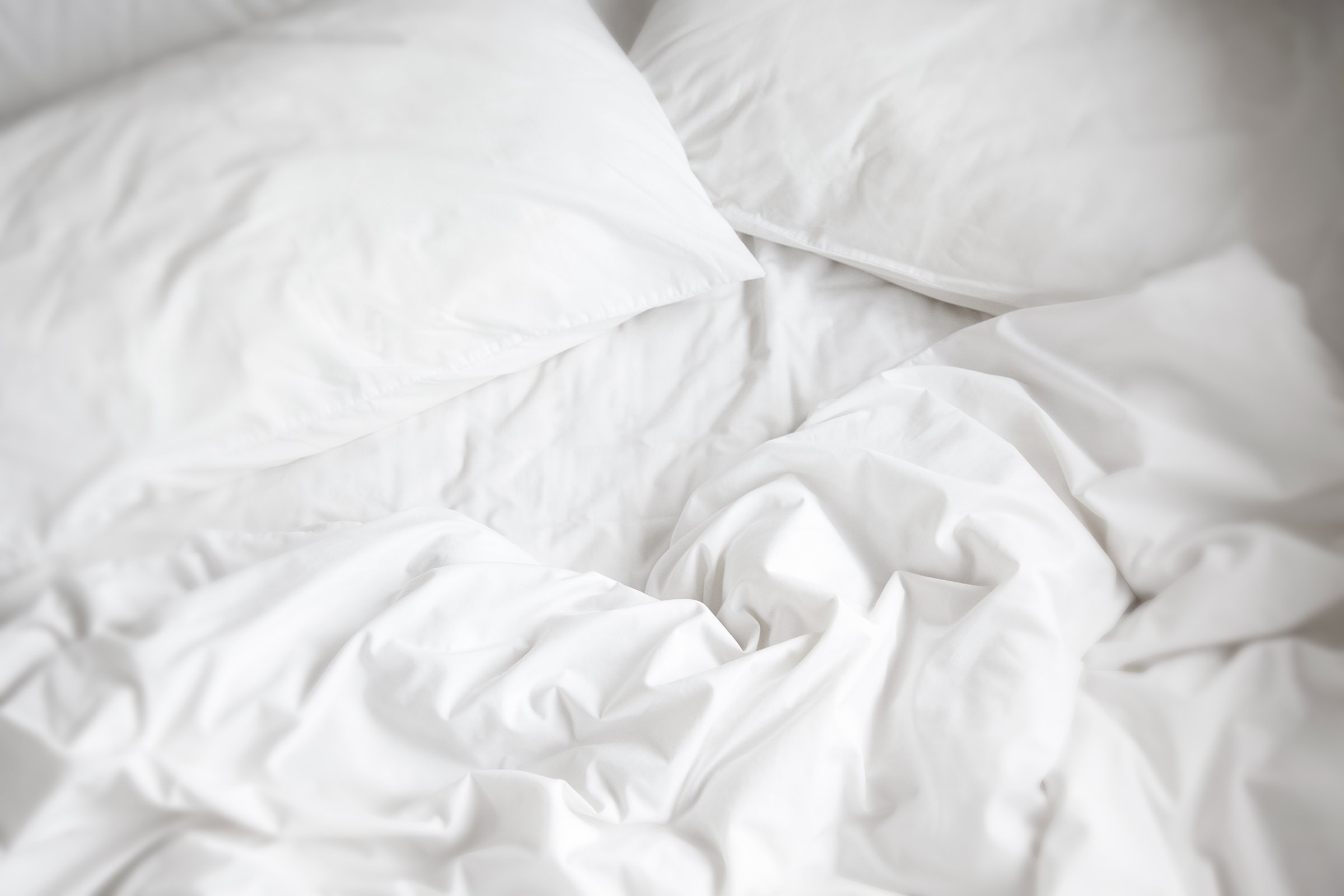
Doctors studying Alzheimer’s disease have known for a while now that their patients are poor sleepers. But does the disease result in disrupted sleep, or do unhealthy sleep habits contribute to the disease?
Reporting in Nature Neuroscience, researchers led by Matthew Walker at the University of California, Berkeley, describe for the first time a unique pattern of sleep brain waves that seems to be linked to a higher risk of building up the brain proteins that can lead to impaired memory.
When the team studied 26 cognitively normal older adults, they found that higher amounts of amyloid, the protein responsible for the hallmark plaques found in Alzheimer’s disease, were linked with more disrupted deep sleep patterns. More importantly, the higher amount of amyloid and the disturbed sleep were also associated with worse performance on simple paired-word memory tests, which the researchers gave the volunteers both before and after a night’s sleep.
MORE: Many Doctors Don’t Tell Patients They Have Alzheimer’s
“It wasn’t just all of deep sleep that was disrupted but a very specific electrical signature deficit that we found,” says Walker. “It’s very particular and very unique, so my hope is that it’s so specific that it may really offer quite a high degree of sensitivity and specificity for the changes we see associated with Alzheimer’s disease.”
He stresses that in the current study, all of the volunteers were cognitively normal, and that the researchers did not follow them to determine if they eventually developed mild cognitive impairment—which often precedes Alzheimer’s—or Alzheimer’s itself. But the fact that the build-up of amyloid was connected to worse performance on the memory task highlights how early the disease process of Alzheimer’s may start: well before people experience any change in their intellectual skills. And one of the factors that may contribute to the accumulation of amyloid may be poor sleep. “Sleep is a great early warning beacon, a distress call that we can latch onto, to potentially alert us to the beginnings of Alzheimer’s,” says Walker.
You Asked: Your Top 10 Health Questions Answered










MORE: New Research on Understanding Alzheimer’s
“What we think we found is a new way that disruption of sleep contributes to the pathology that can disrupt the cementing of memories,” says Bryce Mander, a post doctoral fellow at University of California, Berkeley, and lead author of the paper. The findings also resolve one of the puzzling questions in Alzheimer’s disease: why buildup of amyloid starts initially in areas of the brain that don’t have anything to do with memory. Mander and Walker’s team found that the protein does deposit, however, in areas of the brain that generate the wave patterns of deep sleep.
The relationship between sleep and amyloid is likely a two-way street, they say, in which the more amyloid that builds up, the worse the sleep, and the more disrupted the sleep, the more amyloid that gets deposited. Other studies have shown that deep sleep can cement memories as well as clear away amyloid. Not getting enough deep sleep, then, perpetuates the poor memory cycle.
What that means is that it might be possible to slow down some of the damage done by piled-up amyloid. If poor, disrupted sleep is promoting buildup, then getting more deep sleep might be able to reduce the protein burden in the brain. “If my parents and friends in their 50s, 60s or 70s ask me if they should pay attention to sleep and prioritize sleep in terms of their health risk of developing Alzheimer’s, I would say at this stage very much, ‘yes,’” says Walker. “It’s very clear now that sleep is an under-appreciated factor contributing to cognitive decline later in life, and it seems, to the pathology behind Alzheimer’s.”
More Must-Reads from TIME
- Why Biden Dropped Out
- Ukraine’s Plan to Survive Trump
- The Rise of a New Kind of Parenting Guru
- The Chaos and Commotion of the RNC in Photos
- Why We All Have a Stake in Twisters’ Success
- 8 Eating Habits That Actually Improve Your Sleep
- Welcome to the Noah Lyles Olympics
- Get Our Paris Olympics Newsletter in Your Inbox
Contact us at letters@time.com